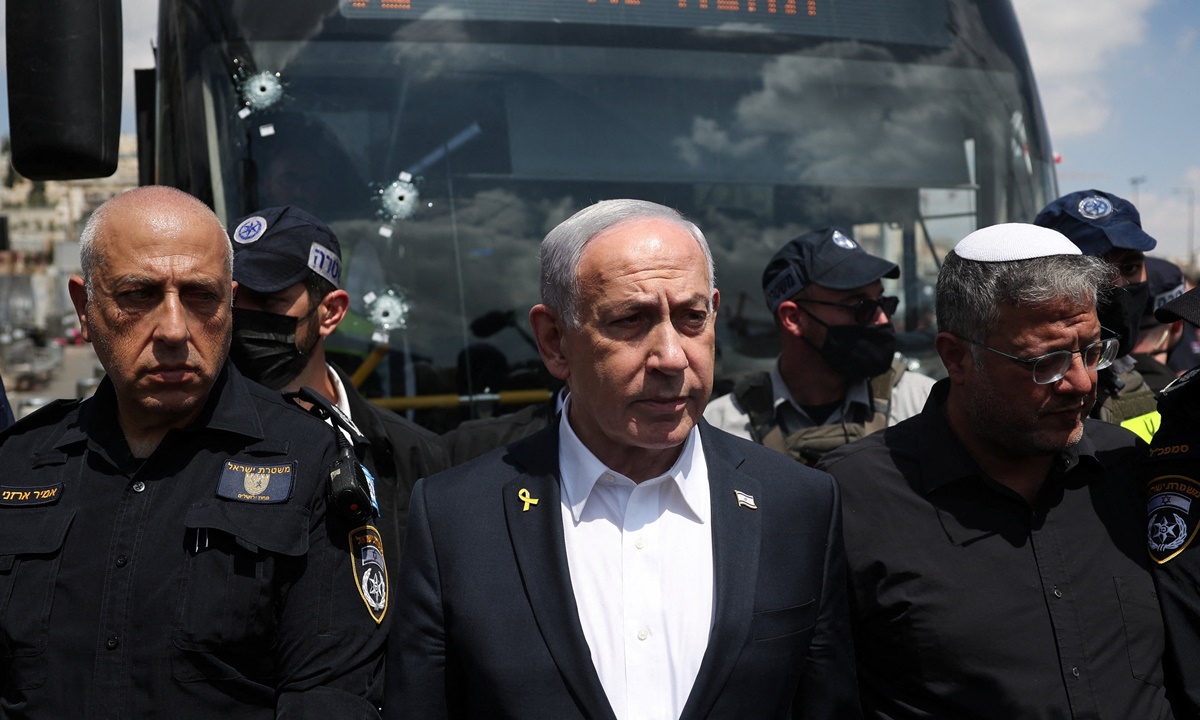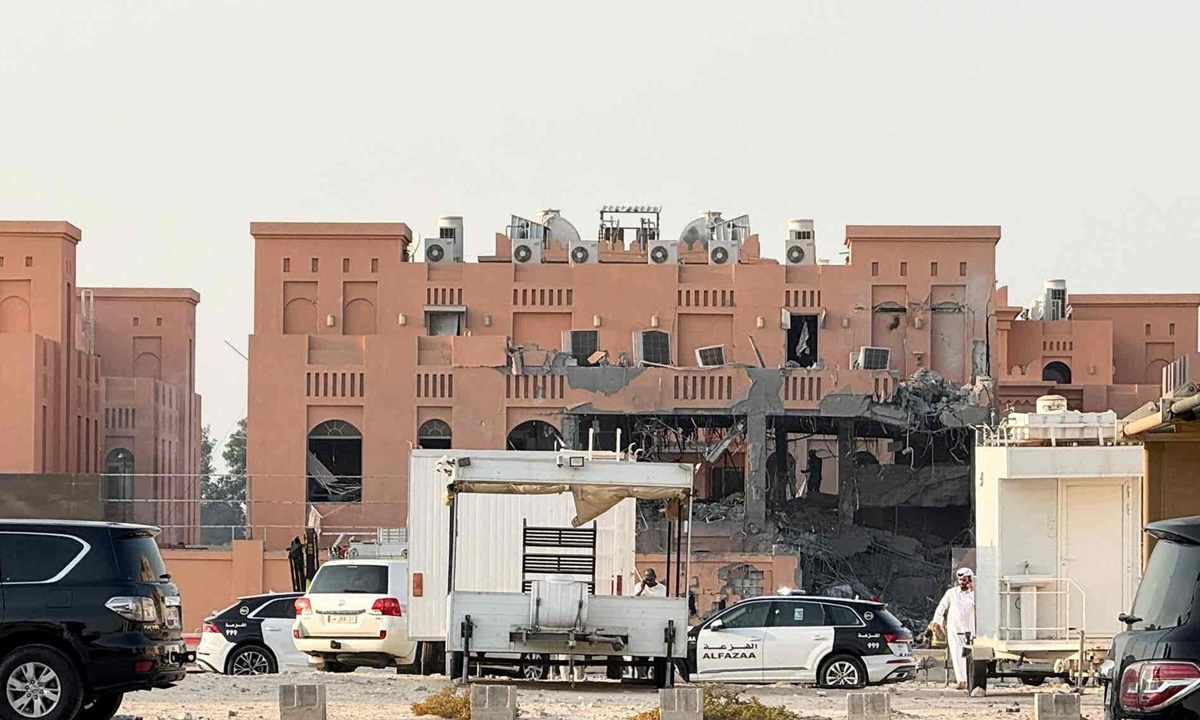Since Hamas's October 7, 2023 incursion into Israel, which resulted in thousands of deaths and hundreds of hostages, Tel Aviv has targeted and eliminated numerous Hamas leaders in Iran, Lebanon, and the Gaza Strip. However, Qatar, where Hamas's political leaders are based, has long been considered untouchable.
This wealthy Gulf nation hosts the largest American military base in the Middle East and maintains unofficial ties with Israel. Qatar also serves as a mediator between Tel Aviv and Hamas, working to end the Gaza conflict.
Therefore, the September 9 Israeli Defense Forces (IDF) airstrike on Hamas offices in Doha caught many, including Qatari leadership, by surprise. The attack posed significant diplomatic risks, targeting a sovereign nation and American ally.
 |
Israeli Prime Minister Benjamin Netanyahu (center) in Jerusalem on September 8. Photo: Reuters |
Israeli Prime Minister Benjamin Netanyahu (center) in Jerusalem on September 8. Photo: Reuters
Citing unnamed officials, Israeli media reported that 15 IDF fighter jets launched 10 precision missiles at the Hamas compound in Doha.
While the building sustained heavy damage, Hamas reported no senior members were killed. However, the strike killed the son of Hamas deputy leader Khalil al-Hayya, along with 4 other individuals connected to the group, and a member of Qatar's security forces.
Prime Minister Benjamin Netanyahu declared the strike part of Israel's ongoing retaliation for the 2023 attack, aiming to prevent future Hamas operations. "The era of immunity for those who sow terror, anywhere, is over," Netanyahu stated on the evening of September 9, hours after the attack. On September 10, he criticized Qatar for "harboring Hamas," emphasizing, "They fund Hamas. They provide luxury villas to Hamas leaders."
Qatari officials explained that Hamas's presence and the hosting of its high-level delegations were at the request of the American government, facilitating communication channels for negotiations.
Qatari Prime Minister Mohammed bin Abdulrahman al-Thani condemned the strike, saying Netanyahu "should be put on trial" and that the operation would "kill all hope" for the hostages and a Gaza ceasefire.
Despite these reactions, Netanyahu maintained the strike was "necessary." Israeli Ambassador to the US Yechiel Leiter stated that if Hamas leaders survived, Israel would "hunt them down" wherever they are.
Current and former Israeli officials agree that the unprecedented Doha strike demonstrates Tel Aviv's resolve to hold Hamas accountable for the October 2023 attack.
Major General Yaakov Amidror, former national security advisor to Netanyahu, noted Israel's previous reluctance to disrupt sensitive relationships with countries like Qatar. "But now we are declaring that if someone tries to kill Israelis, they will be eliminated anywhere," he said.
People flee as Israel strikes Hamas targets in Doha, Qatar, on September 9. Video: NY Post
Observers suggest Netanyahu prioritizes eliminating Hamas over rescuing hostages or establishing a long-term plan for Gaza. "He is making it clear that destroying Hamas is his first and most important goal," commented Adi Rotem, a former Israeli intelligence officer involved in Gaza ceasefire negotiations.
Netanyahu pledged to both eliminate Hamas and return the hostages. However, analysts believe a negotiated agreement, not military action, is the only path to hostage release. Hamas has stipulated their release is contingent on Israel agreeing to a permanent end to the conflict. Netanyahu has rejected this, demanding Hamas's disarmament and removal from power in Gaza.
Former Israeli officials and experts believe the Doha attack aims to influence the stalled negotiations with Hamas regarding a ceasefire and hostage release. Israel appears to be pressuring Hamas to shift its decision-making center from its political leadership in Qatar to its field commanders in Gaza.
These commanders, holding the hostages, are considered more susceptible to Israeli pressure in Gaza, particularly with the impending ground offensive in Gaza City, Hamas's last stronghold.
President Donald Trump recently increased pressure on Hamas with a new proposal, calling for the immediate return of all hostages in exchange for a ceasefire and broader negotiations to end the conflict. While Hamas rejected the proposal, they expressed willingness to negotiate immediately.
According to Shalom Ben Hanan, a former official with Israel's Shin Bet internal security agency, Israeli leadership has lost patience with Hamas's delaying tactics. "They want to advance negotiations, but with Israel's own tools," he said, referring to military actions.
However, many Israelis fear the Qatar strike could backfire, endangering the remaining hostages if Hamas seeks revenge. Historically, Hamas has demonstrated resilience in the face of leadership losses. They have refused Tel Aviv's surrender demands even after high-ranking officials, including Gaza leader Yahya Sinwar, the mastermind of the 2023 incursion, were killed.
"It is delusional to think that assassinations will scare Hamas and force them to change course," said Ibrahim Madhoun, a political analyst close to Hamas.
 |
The targeted building in the Israeli airstrike in Doha, Qatar, on September 9. Photo: Reuters |
The targeted building in the Israeli airstrike in Doha, Qatar, on September 9. Photo: Reuters
Ehud Yaari, an expert at the Washington Institute for Near East Policy's Israel office, believes the September 9 strike, besides eliminating key Hamas figures, aimed to "change the structure of the negotiations." "It is clear that the ceasefire efforts are stalled," Yaari said. "So they need to do something to change the situation, such as moving the negotiations away from Qatar and strengthening the role of Egypt, the other mediating country."
Vu Hoang (According to Reuters, AP, AFP)












